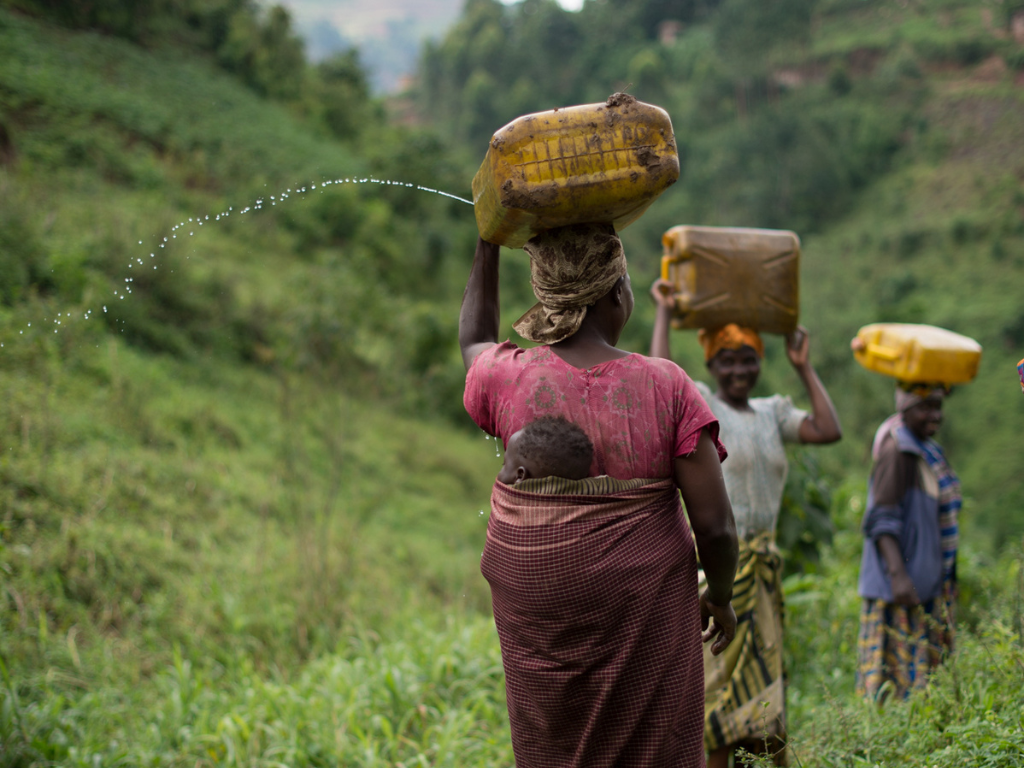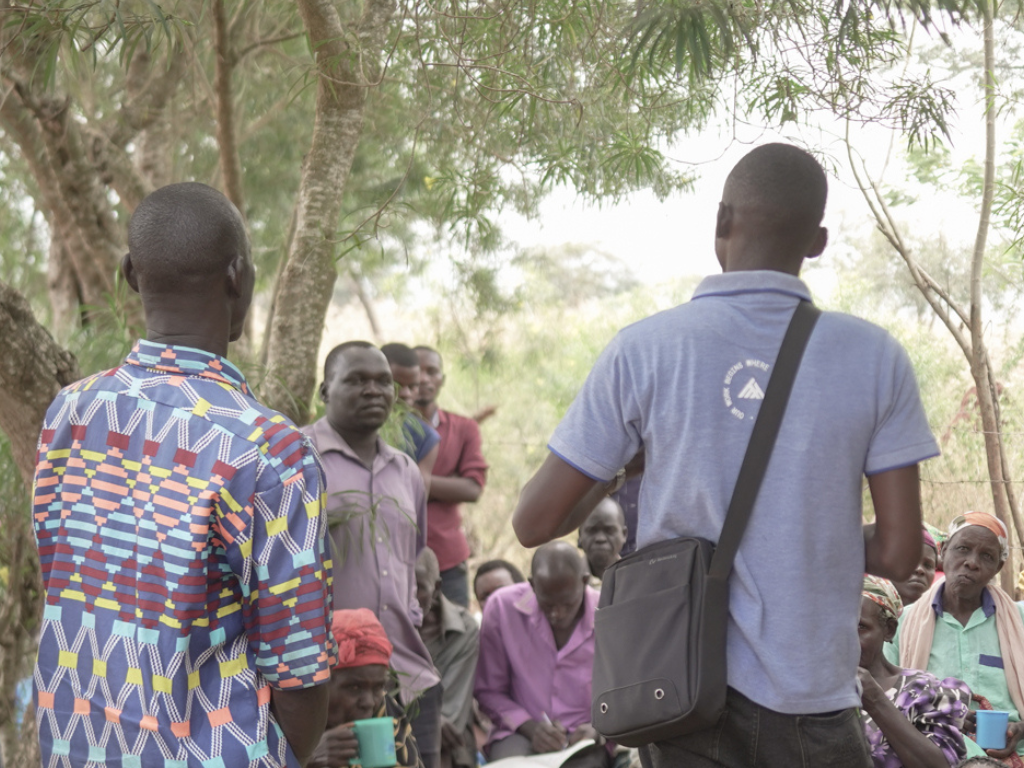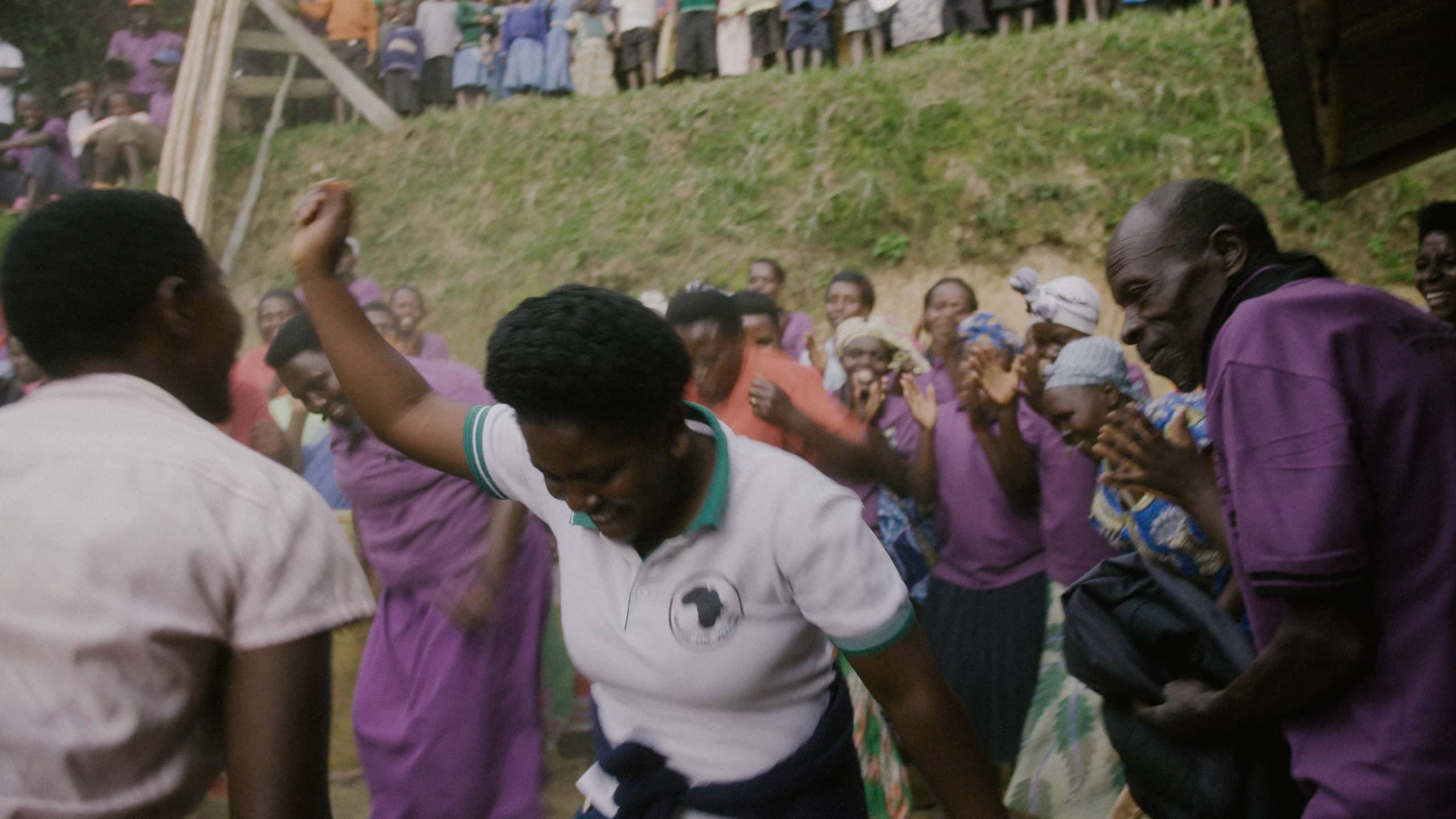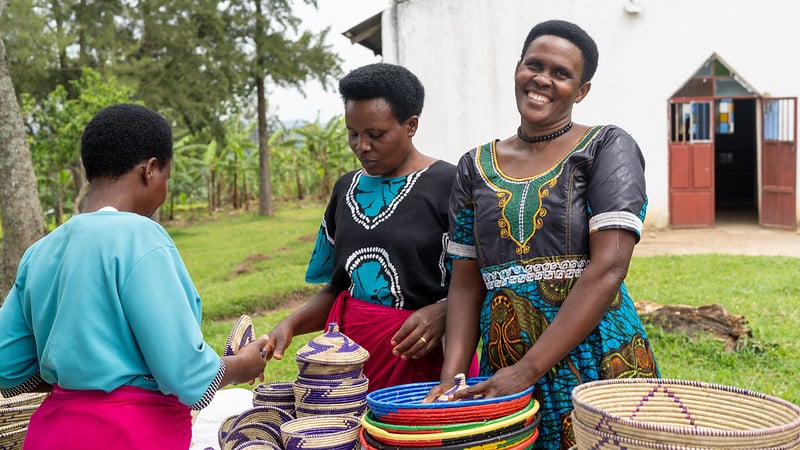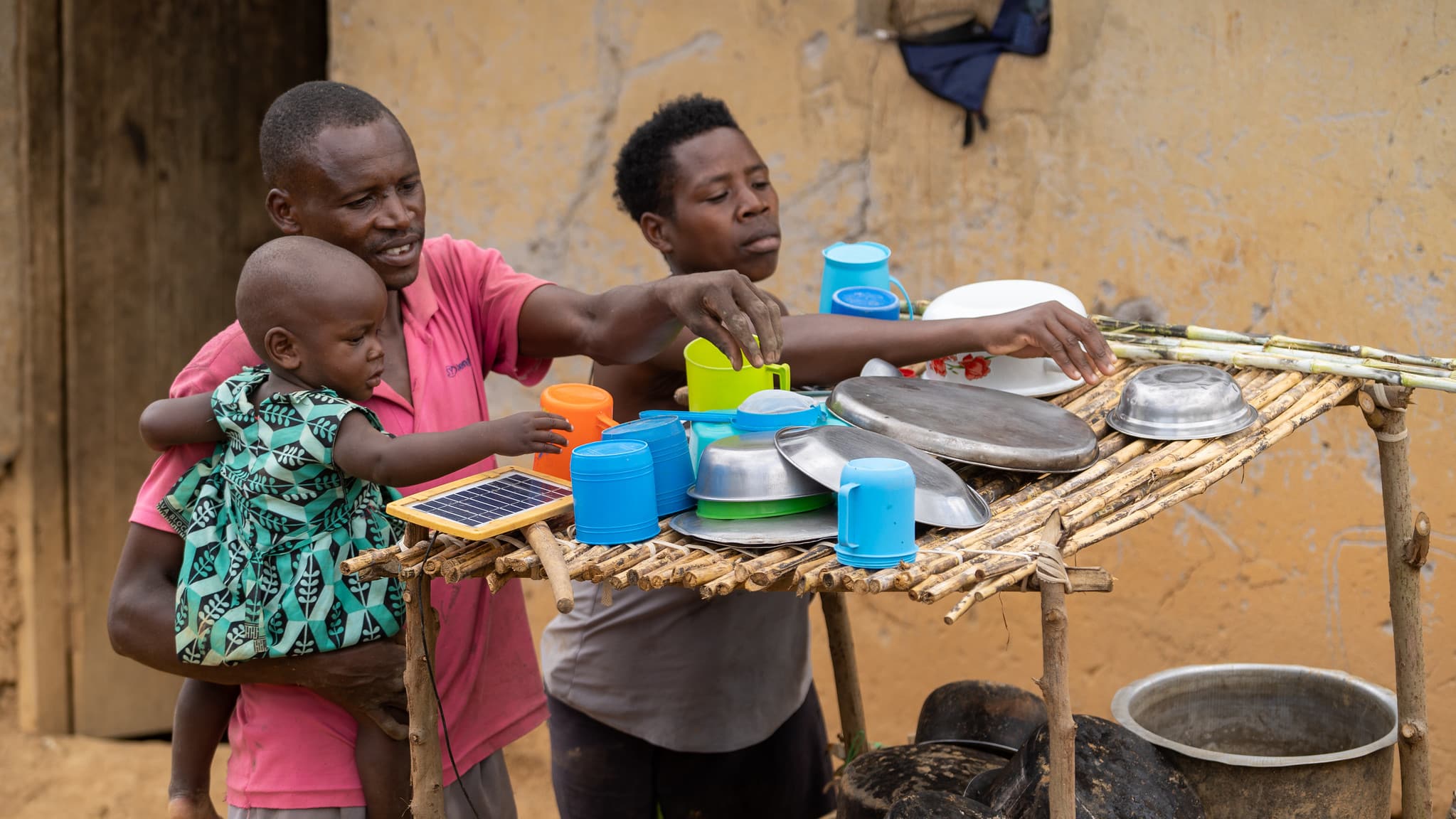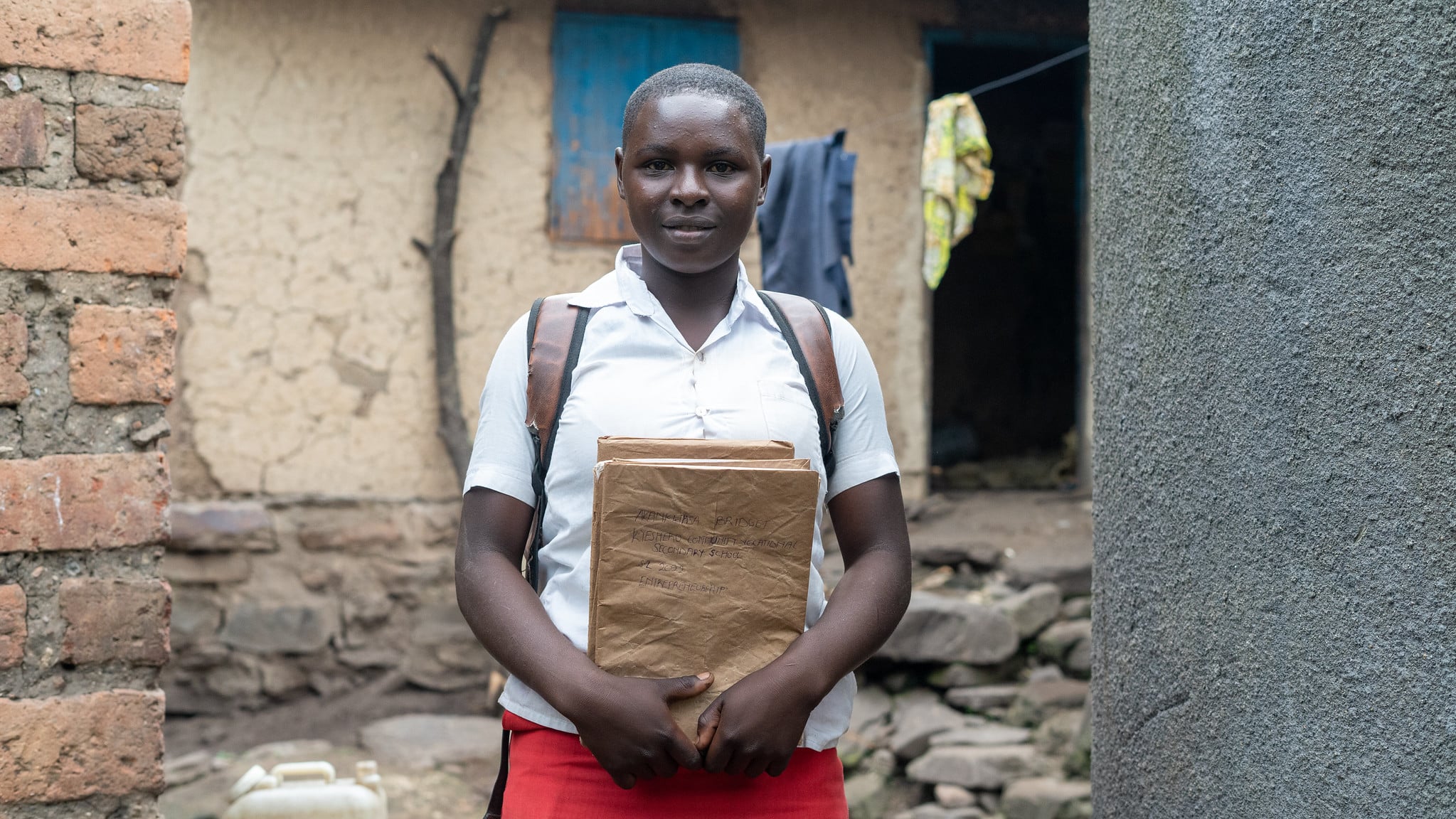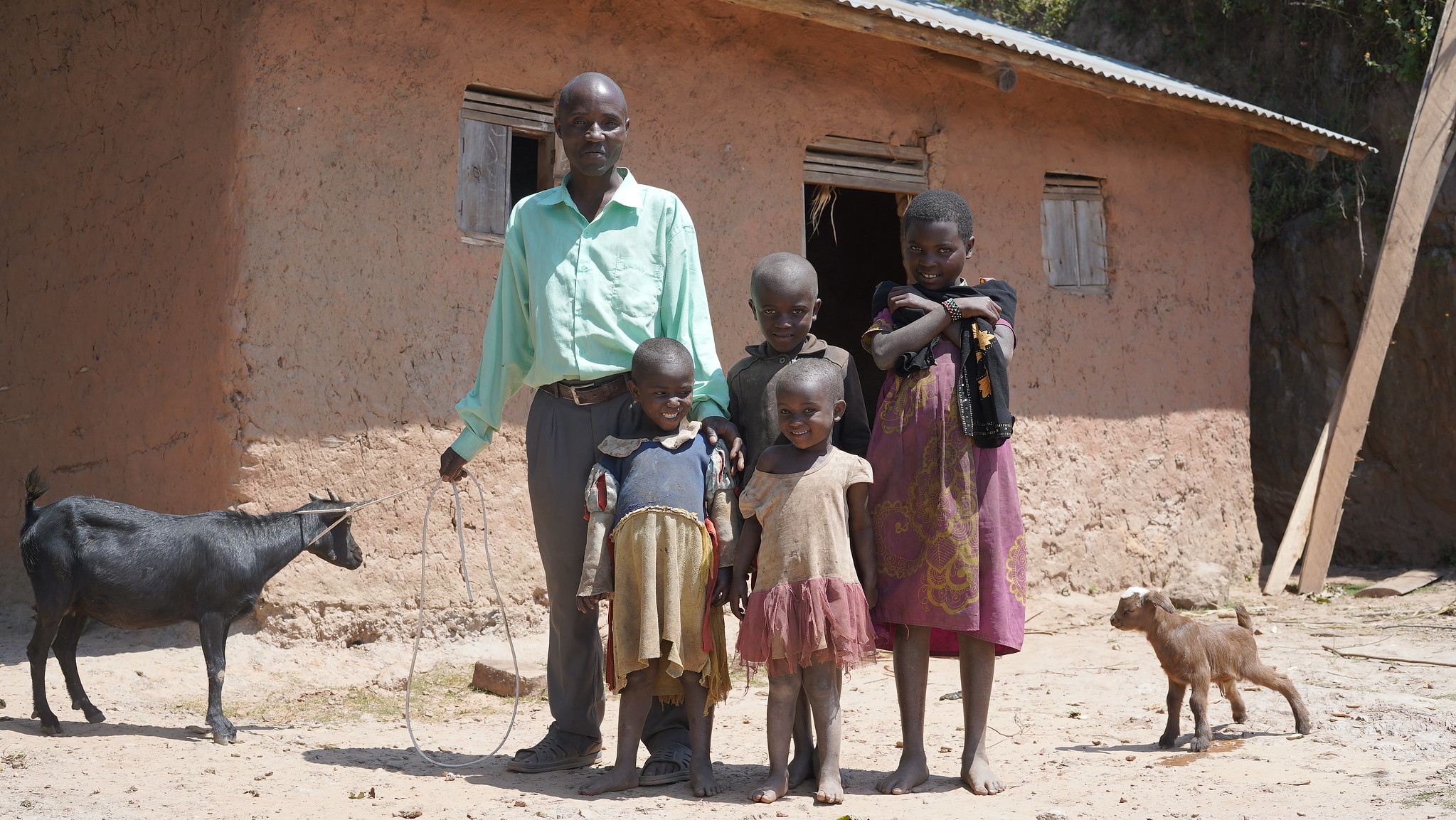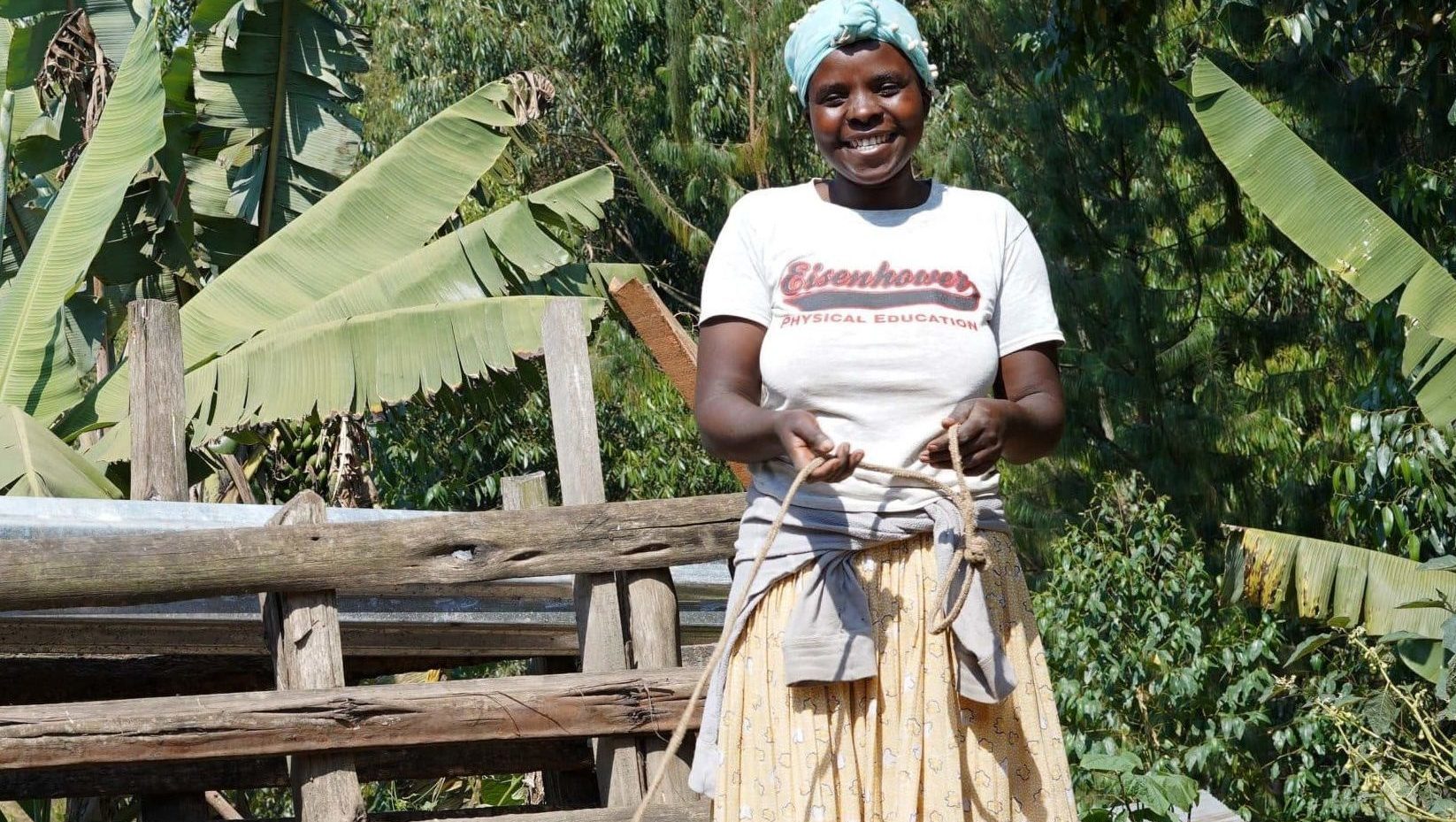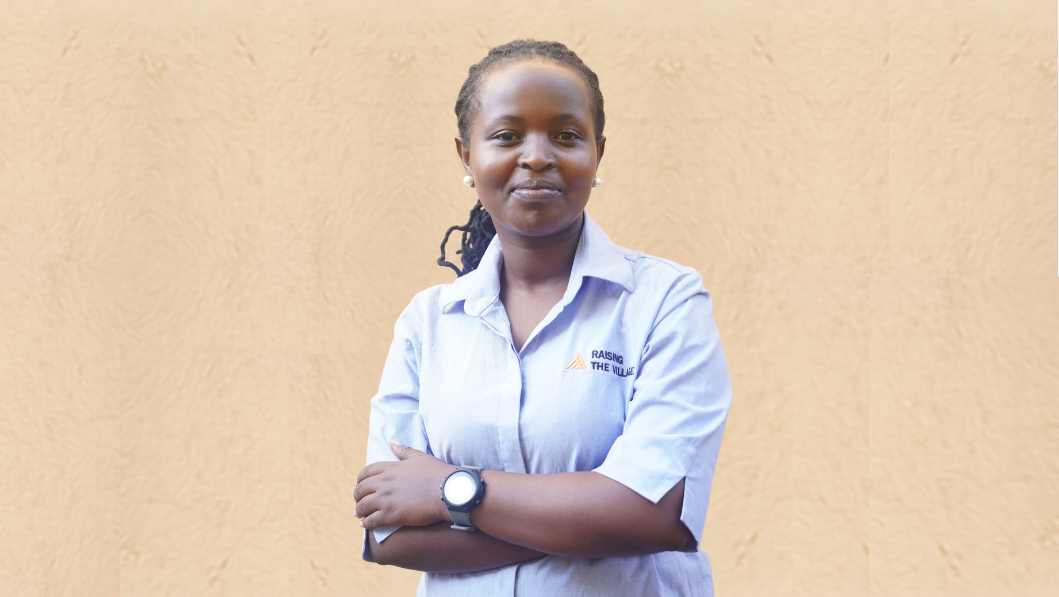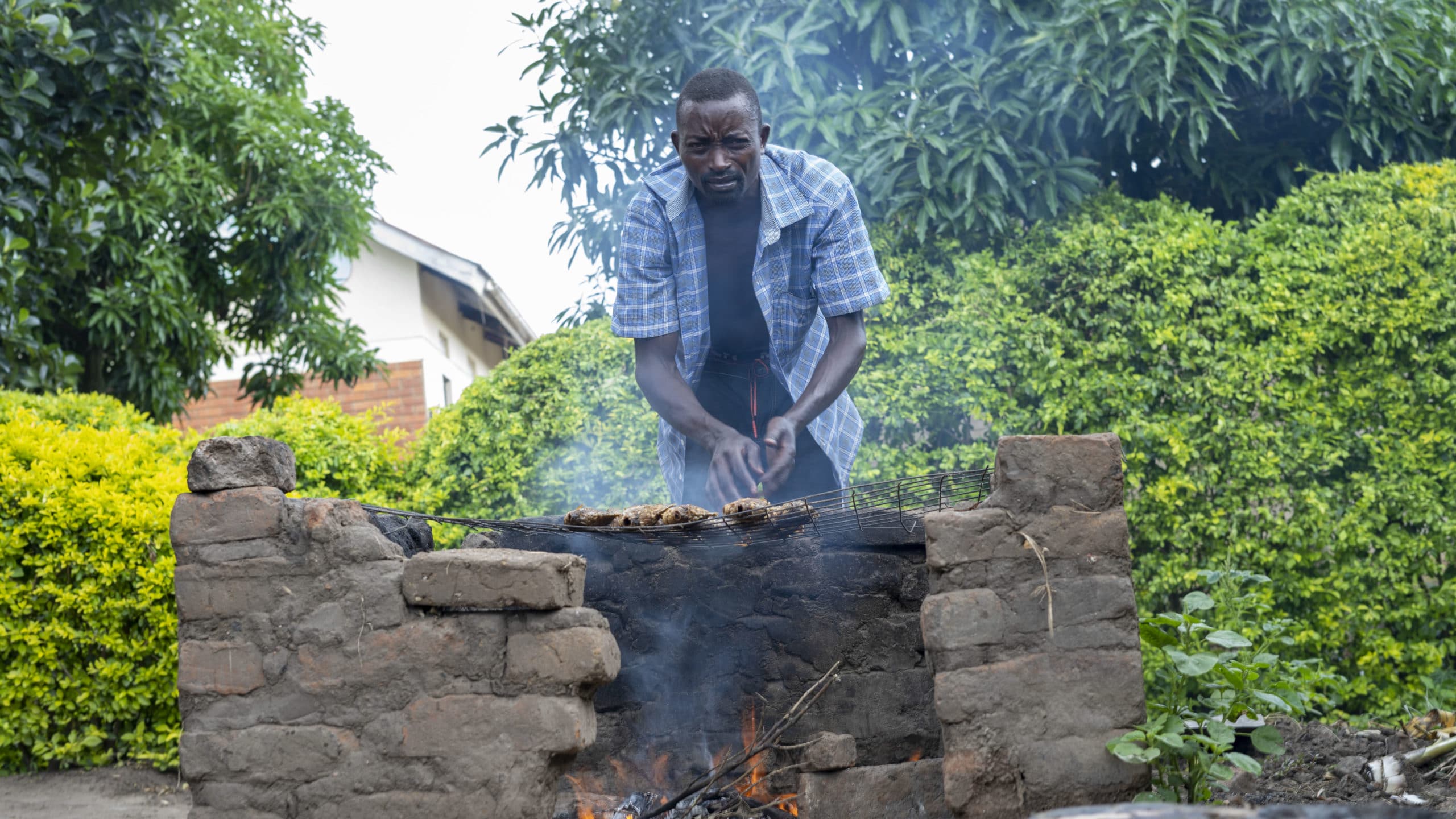“Our lives have tremendously changed over the past two years. You can see that the women in the group can take better care of themselves and their families,” Scovia, Itara Tweyambe Women VSLA’s Chairperson, expressed at the group’s monthly meeting.
The first thing you notice about William is his optimism. As he shared his story and the hardships he has endured over the last few years, one couldn’t help but admire his resilience and determination to work towards a better future.
Every morning, 14-year-old Bridget in Katiba Village puts on her uniform, grabs her books and heads off to school. This wasn’t the case two years ago, when Bridget’s family struggled to make a stable income.
Aggrey’s daily mission was to secure his family’s needs. Raising four children with his wife, Aggrey and his family had to overcome all the hardships that affect most last-mile communities.
Evelyn is a 28-year-old mother who is determined to give her children a better life. Along with her husband, she raises her children at their small home in Karondo, a last-mile, ultra-poor community in Rubanda District in Uganda.
In this Q&A with RTV’s Senior Project Officer Beninah Byarugaba, learn how we partner with Ugandan youth as they unlock their potential, upgrade their skills, and improve their livelihoods, so they can break the cycle of ultra-poverty.

